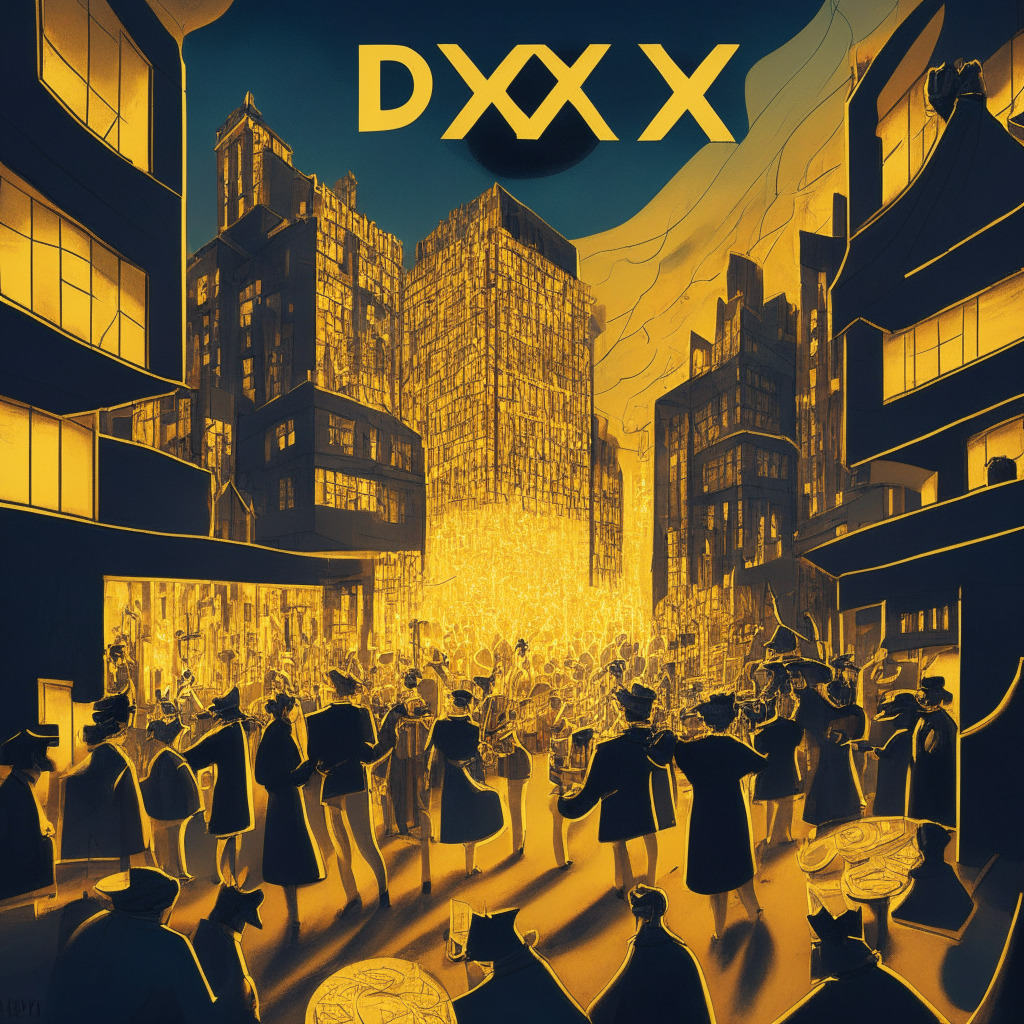The joint synthesis paper from the International Monetary Fund and the Financial Stability Board discusses the challenges of implementing a total ban on crypto activities. Instead, it recommends targeted limitations and emphasizes the need for robust regulatory scrutiny. The paper also advises caution against granting crypto legal tender status, calls attention to potential risks associated with stablecoins and DeFi, and highlights possible macro-financial risks in emerging markets.
Search Results for: Tim Grant
FCA Extends Deadline for Crypto Firms: Implications, Challenges and Impact on UK’s Crypto Market
The UK’s Financial Conduct Authority (FCA) has extended the deadline for cryptoasset firms to make changes to their marketing practices. This includes a mandatory 24-hour cooling-off period for new clients and greater transparency. Firms infringing on new directives could face unlimited fines and/or imprisonment. The UK, despite regulatory tightening, remains a growing hub for crypto.
Navigating the Tightrope: UK’s Crypto-Regulation Paradox and its Impact on the Future of Blockchain Innovation
“The UK’s Financial Conduct Authority (FCA) is set to enforce restrictive measures on crypto promotions from October, potentially extending to January 2024 for technical compliance adjustments. This could impact crypto firms’ ability to advertise with clarity and fairness, redefining the crypto advertising ecosystem. However, these changes raise concerns about stifling innovation within the crypto industry.”
Navigating Polkadot 2.0: A Revolutionary Shift for Developer Attraction & DOT Token Economy
Polkadot’s innovative roadmap, Polkadot 2.0, aims to reimagine resource allocation to foster efficiency and inclusivity. It introduces ‘elastic cores’ for flexible computational capabilities and ensures coretime allocation aligns with developers’ evolving needs. Improved availability and budget-friendliness could potentially increase DOT tokens’ market value, while fees from coretime sales support Polkadot’s Treasury.
Future of Transactions: A Russian Salon Charts New Course with Digital Ruble Payment
A beauty salon in Yekaterinburg, Russia, recently accepted its first digital ruble payment, pioneering the use of Russia’s Central Bank Digital Currency (CBDC) in the commercial sector. This case has sparked optimism that digital currency could offer unique payment solutions, even in areas with limited or no internet access.
Ether ETF Anticipation: Predicting a Bull Run or Navigating a Bubble?
The U.S. SEC nears the deadline for the approval or rejection of the first ether ETF which, according to a report by K33 Research, could cause a considerable boost in ether’s price. Comparing it to the 60% gain bitcoin experienced upon the launch of its first futures-based ETF, the analyst suggests a favorable market impact. Despite the SEC’s delay and consequent dip in bitcoin’s fortune, aggressive accumulation is recommended due to long-term potential.
₿trust Acquisition of Qala: A Turning Point for Bitcoin Development in Africa or Cause for Concern?
₿trust, a non-profit backed by Twitter co-founder Jack Dorsey, recently acquired Qala, a body aiming to enhance Bitcoin and Lightning engineers’ skills in Africa. The integration aligns with ₿Trust’s mission to stimulate Bitcoin open-source developers’ learning globally, particularly in the Global South, potentially changing the region’s involvement in Bitcoin development.
DeFi Drama: The Synapse-Nima Capital Incident and Crypto Bankruptcy Profit Surge
“In an unexpected move, Nima Capital’s withdrawal of liquidity from the DeFi cross-chain bridge Synapse caused a dramatic decrease in the value of SYN tokens, causing uproar in the crypto community. Despite this, Synapse reassures users of their platform’s security system integrity. Additionally, the escalating complexity of cryptocurrency bankruptcy cases is resulting in a staggering profit for legal practitioners.”
Deribit’s Resilience: Prospering in Crypto Trading Amidst Global Derivatives Slump
Despite a global slump in derivatives activity, Deribit’s crypto trading volume demonstrated resilience, with the total activity of options, futures, and perpetual futures rising 17% compared to the previous month. This strong performance can be attributed to successful option contracts execution, allowing Deribit to control nearly 90% of global crypto options activity, highlighting its considerable market influence.
HelbizCoin Scandal: Unsettling the Crypto ‘Regulation-Free’ Ethos or Securing Investment?
The class-action lawsuit against the creators of HelbizCoin centers on fraudulent promises and price manipulation, adding complexity to cryptocurrency regulations as the coin is classified as a security under federal law. This case could broadly impact the relationship between national laws, international jurisdictions, and global networks, potentially leading to stricter regulations and reshaping the crypto-market.
Cryptocurrency in Philanthropy: Exploring the Opportunities and Challenges Amid Wildfire Relief Efforts
“High-profile individuals like Oprah Winfrey and Dwayne ‘The Rock’ Johnson established the People’s Fund of Maui, accepting crypto donations, providing aid to those affected by wildfires. However, fluctuating crypto values and anonymity raise some concerns. Yet, if properly addressed, cryptocurrencies hold promising opportunities for philanthropy.”
Bitcoin in September: A Rocky Road or an Investment Opportunity on the Horizon?
“Bitcoin may face a challenging September, possibly ending in the red. Yet, Bloomberg ETF analysts suggest a brighter scope from mid-October with potential opportunities due to regulatory shifts and deadlines for seven Bitcoin ETFs. Bitcoin’s adventure in currency world continues promisingly.”
Ex-FTX CEO’s Legal Orchestra: Defense Preparation vs Detainment Standards
Ex-CEO of FTX, Sam Bankman-Fried, is caught in a legal battle with his defense attorneys’ appeals for temporary release being rejected by the court. This debate exposes a complex tug-of-war between comprehensive defense rights and the consideration of detainment standards and charges weights.
Navigating Legal Hurdles: Former FTX CEO’s Trial and FTX’s Data Breach Debacle
Former FTX CEO Sam Bankman-Fried’s lawyers may request trial postponement due to alleged issues with access to discovery materials. He faces 12 criminal charges. Meanwhile, there’s been a breach involving a bankruptcy claim by FTX that potentially exposed user data, underlining inherent risks in the crypto arena.
Legal Fairness vs. Technological Demands: Insights from a Crypto CEO’s Confinement
The former FTX CEO, Sam Bankman-Fried, has found himself in legal troubles again. His defense team claims that limited internet access and subpar laptop technology at the detention center are impeding their preparation for the upcoming trial in October.
Social Media Giant X Dives into Crypto: Speculations, Implications, and the Elon Musk Factor
“Social media giant, X, has earned a regulatory license to process cryptocurrency payments in the United States, by obtaining the Rhode Island Currency Transmitter License. This move, supported by several states, strengthens X’s potential to facilitate virtual transactions, possibly expediting the mainstream adoption of digital currency.”
Grayscale’s Legal Triumph Fuels Hope for Bitcoin ETF, Yet Obstacles Remain
A federal judge’s ruling favorably for Grayscale in their SEC disputes positively affected the cryptocurrency market, sparking hopes for a Bitcoin ETF’s arrival. The verdict means Coinbase could potentially share data related to trading to mitigate market manipulation risks. However, a Bitcoin spot ETF remains absent due to SEC’s reluctance. Investors seek a direct investment instrument to Bitcoin.
Cryptocurrency Scams: A Human Rights Crisis in Southeast Asia
The United Nations Human Rights Office warns of widespread crypto scams in Southeast Asia, where hundreds of thousands fall victim to fraudulent schemes and human rights violations. Victims are often educated and multilingual, exploited due to dire financial situations. Approximately 120,000 in Myanmar and 100,000 in Cambodia are reportedly ensnared in these scams.
EOS Gains Ground in Japan: An Underdog Cryptocurrency’s Resurgence and Its Implications
The EOS Network has received endorsement from Japan’s cryptocurrency authority, granting EOS token rights for trade against the yen on Japan’s regulated cryptocurrency exchanges. EOS Network Foundation CEO, Yves La Rose, views this as a unique opportunity for EOS to grow within a regulated market known for stringent transparency. This development also opens up potential for game tokenization, an untapped sector in Japan.
EOS Network’s Dramatic Turnaround: Nod from JVCEA & Promises of the Japanese Market
EOS Network, a blockchain that garnered $4 billion in its initial coin offering, has been granted white-list approval by Japan’s regulatory body for crypto exchanges. This allows EOS to compete with major cryptocurrencies like Bitcoin and Ethereum on Japan’s regulated crypto exchanges. The approval signifies EOS’s compliance commitment and opens new opportunities for the network in the Japanese market.
Hong Kong and the Emerging Crypto Landscape: Opportunities and Obstacles Unveiled
SEBA Bank’s Hong Kong arm gained preliminary approval from the Hong Kong Securities and Futures Commission (SFC) to operate virtual asset services. However, the future of the crypto ban in mainland China remains uncertain. This development presents significant opportunities in Hong Kong’s digital asset regulatory framework and potential access to the Chinese market.
Tech Giant X’s Crypto Leap: A Catalyst for Mainstream Adoption or a Deflated Bubble?
“Tech giant X has secured a license from Rhode Island regulators to manage, transfer, and trade digital currencies. This significant step potentially positions the company as a robust ‘everything app’, incorporating both fiat and crypto payments, and could propel its presence in the financial services stratosphere. However, the exact financial offerings upon its roll-out remain uncertain, fostering both anticipation and skepticism.”
Federal Court Ruling on Bitcoin ETFs: A Setback for SEC or Forward Leap for Crypto Industry?
The U.S. Securities and Exchange Commission (SEC) must reconsider its stance on bitcoin spot ETFs following a court victory by Grayscale Investments. The SEC has four options, but the course of action it takes could set a precedent for future crypto projects. It’s crucial that the SEC finds a balance between embracing cryptocurrency and ensuring investor protections, without stifling innovation.
Grayscale’s Legal Triumph vs. SEC & Iris Energy’s AI Ambitions: Contrasting Crypto Moves
“In a significant legal case, Grayscale Bitcoin Trust triumphed over the SEC regarding its GBTC application for a Bitcoin ETF. However, this doesn’t guarantee a listing. Meanwhile, Iris Energy bought 248 Nvidia H100 GPUs for AI technologies and Bitcoin mining, presenting issues around energy consumption and sustainability in the crypto sector.”
Disney Goes Digital: The Advent of Mickey Mouse Blockchain Toys and the Future of Collectibles
Disney characters Mickey Mouse, Minnie Mouse and Pluto are set to be released as Cryptoys, digital toys on the Flow blockchain. This follows the success of Star Wars characters as crypto collectibles. The initiative includes rarity levels and rewards for complete sets, suggesting a promising future for the digital toy industry.
Major dYdX Token Release: Astonishing Growth Opportunity or Risky Gamble?
Decentralized exchange dYdX is preparing to unlock 6.52 million DYDX tokens worth around $14 million for the community treasury and rewards. This major token unlock emphasizes the complex interplay of fast-growth potential and inherent risk in the nascent blockchain markets.
Swinging Scales of Justice: The Battle Over Expert Witnesses in the FTX Trial
The DOJ contests the validity of the witnesses proposed by FTX founder Sam Bankman-Fried for their trial, stating the insufficiency of their disclosures and potential confusion their testimonies might cause. Simultaneously, Bankman-Fried’s defense aims to dismiss DOJ’s financial analysis expert, causing a tug of war. This controversy emphasizes the line between enlightening and misleading expert testimonies in court.
Navigating the Choppy Waters: Binance’s Launch of T+3 Daily BNB Options & Its Market Implications
Binance Options is set to introduce “T+3” daily call and put contracts related to BNB, a cryptocurrency intrinsically linked with the exchange itself. Essentially, these options can be traded two days prior to expiry, initially offering a lifetime of three trading days from their introduction, promoting increased flexibility in cryptocurrency markets. This move also reflects Binance’s positive outlook towards the future of cryptocurrency markets.
Laos Electric Company Curbs Crypto Mining Amidst Energy and Environmental Concerns
“Electricite du Laos (EDL) announces a significant cut to crypto mining firms’ operations, due to rising concerns on electricity production & environmental impact. This comes after Laos’ attempt to become a digital assets mining hub following China’s stringent regulation.”
Stricter Crypto Regulations in South Korea: Balancing Investor Protection and Market Survival
South Korean crypto exchanges like Upbit and Bithumb are mandated to uphold a reserve fund of at least 3 billion won to enhance user security. This evolved regulatory measure, part of the “Virtual Asset Real-Name Account Operation Guidelines,” aims to address potential risk events. Limits are set on these reserves to ensure financial stability. The regulations also aim to strengthen KYC processes and optimize fund transfer rules. Despite these measures promising a more secure experience, concerns arise for smaller exchanges possibly facing unsustainable financial burdens.
Bankruptcy Judge’s Hesitation on Crypto Tokens as Securities: A Case Study of Celsius
The bankruptcy judge recently declined to classify CEL, Celsius’s native token, as a security amid Ripple Labs and SEC’s ongoing legal issues. CEL’s business model significantly deviated, being referred to as “insolvent since inception” by a court-appointed examiner, who suggested CEL was part of a problematic scheme. The rising token value benefits the company but raises concerns about ethical considerations and customer implications.
Breaking Down the Misconceptions: Pursuit of Privacy VS Illicit Activities
“This article examines the tension between the pursuit of individual privacy and law enforcement within the new dynamic of digital transactions and encrypted communications. The piece explores evolving attitudes towards privacy, concerns around governmental access to private information, and the complexities introduced by emerging technologies on privacy rights.”































